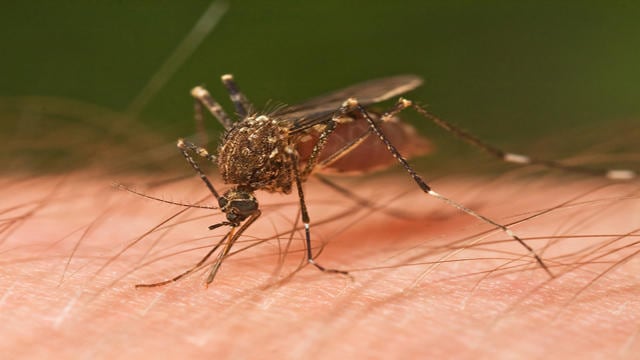West Nile Virus Found in Oakville Mosquitoes
Published July 13, 2017 at 7:19 pm

If you’re concerned about West Nile Virus (WNV), you might want to take extra precautions while out and about in Oakville.
If you’re concerned about West Nile Virus (WNV), you might want to take extra precautions while out and about in Oakville.
A batch of mosquitoes trapped in Oakville has tested positive for West Nile virus (WNV), making it the first confirmed sample in Halton this year.
“The first positive mosquito pool in Oakville was found at North Service Rd., between Bronte Rd. and Third Line, and Halton Region has not had any human cases of West Nile virus reported as of July 8,” said Halton Region spokesperson Heather Burnett.
The Region’s health department “works diligently to reduce the risk of West Nile virus in our community through both education and preventative programs such as larviciding,” said acting Medical Officer of Health Dr. Daniela Kempkens.
“We can all work together to keep our community safe and protect ourselves from West Nile virus by removing standing water sites that breed mosquitos and covering up or applying DEET or Icaridin when outside during dusk and dawn.”
Urban areas are more likely to have mosquitoes carrying WNV.
The types of mosquitoes that transmit WNV to humans most commonly breed in urban areas, typically in places holding water such as bird baths, plant pots, old toys, and tires.
Residents can take the following steps to protect themselves and their families from mosquitoes:
- Cover up. Wear light-coloured, long-sleeved shirts and pants with tightly-woven fabric.
- Use an approved insect repellent, such as one containing DEET or Icaridin.
- Avoid being outdoors from early evening to morning when mosquitoes are most active and likely to bite, as well as at any time in shady, wooded areas.
- Make sure your window and door screens are tight and without holes, cuts or other openings.
- Reduce mosquito breeding sites around your home by getting rid of all water-filled containers and objects, where possible. Change the water in bird baths at least once per week.
A map showing the locations of standing water sites that have had larvicide applied this year is available here.
Residents can phone 311 or e-mail [email protected] to report standing water at public facilities.
insauga's Editorial Standards and Policies advertising





